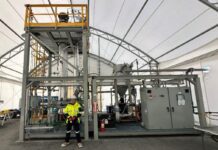
The Australian Industry Group (Ai Group) has called for a significant overhaul of the country’s research and development (R&D) system, warning that Australia risks falling behind if commercialisation and productivity outcomes are not prioritised in future reforms.
In its submission to the Strategic Examination of Research and Development (SERD), Ai Group said that despite decades of ambition to become a “clever country”, businesses have not seen meaningful improvements in the way R&D is translated into economic outcomes.
“Australia stands at a critical crossroads in its R&D journey. Despite decades of rhetoric about becoming a ‘clever country’, our members have not seen material changes to match these aspirations,” said Ai Group Chief Executive Innes Willox.
Ai Group cautioned that increasing funding alone is unlikely to be effective without addressing the broader structural challenges in the system.
“Simply pouring more funding into a dysfunctional system won’t enhance its effectiveness. Calls to increase research funding to 3% of GDP are divorced from economic reality if the commercialisation imperative is not addressed,” Willox said.
The group pointed to a number of pressures affecting Australian businesses, including slowing investment, restrictive workplace relations, an uncompetitive tax system, and skilled labour shortages, all of which it said are constraining productivity at a time when growth is urgently needed.
“What Australia desperately needs isn’t more of the same, but rather a fundamentally new approach for how R&D translates into commercial outcomes and productivity gains. The time for incremental change has passed,” Willox said.
Among its key recommendations, Ai Group proposed the creation of a Ministerial Council for Innovation Science and Technology, a National Prototyping Network, reforms to the R&D Tax Incentive, and the establishment of a national IP Bank to serve as a repository for publicly funded intellectual property.
“Effective R&D commercialisation is one of the most powerful levers we have to reverse [stagnating productivity]. Our nation’s productivity performance has stagnated for too long, limiting wage growth and economic prosperity,” Willox said.
He added that with Australia facing major transitions including decarbonisation, economic diversification, and digitalisation, rebuilding business capacity to innovate and commercialise will be crucial.
“We urge the panel to place commercialisation and productivity outcomes at the centre of any reform agenda for Australia’s R&D system,” he said.
Ai Group’s full submission to the SERD is publicly available.




















